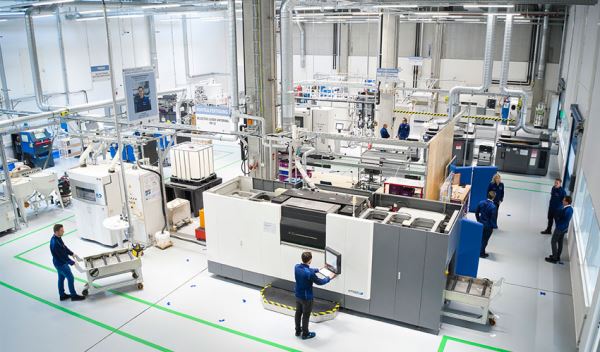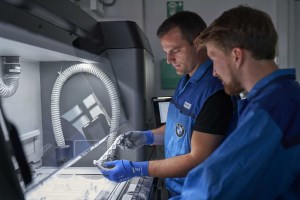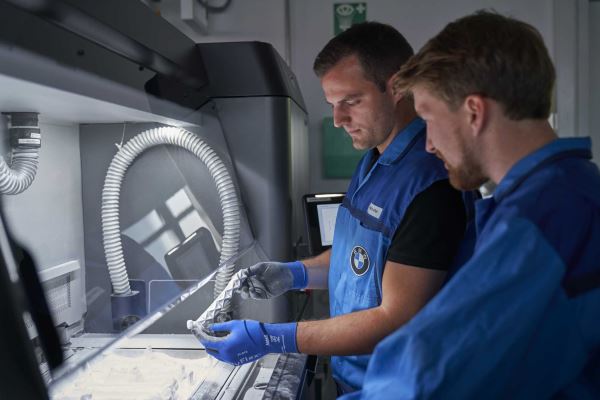The BMW Group is investing more in 3D printing research and development with the opening of a new €15 million (A$25 million) additive manufacturing facility in Munich.
The new facility is designed to “industrialise 3D printing” and shorten production times across the company.
The campus brings BMW’s prototype production, series parts manufacturing, research into new 3D printing technologies, and training, together under one roof.
The centre will also house around 50 per cent of the automotive company’s global additive manufacturing (AM) capacity, comprising 50 industrial polymer and metal 3D printers.
By centralising its 3D printing resources, BMW aims to further automate its design and production processes.
And by automating process chains that previously required large amounts of manual work within its own business, BMW aims to make 3D printing more economical and viable for use in the long-term.
“Our goal is to industrialize 3D printing methods more and more for automotive production, and to implement new automation concepts in the process chain,” says Daniel Schäfer, Senior Vice President for Production Integration and Pilot Plant at the BMW Group. “This will allow us to streamline component manufacturing for series production and speed up development. At the same time, we are collaborating to systematically integrate the technology and utilize it effectively.”
Commitment to 3D printing
BMW has used 3D printing technology to produce a variety of car components in recent years, and many other automotive companies have done the same.

The automotive giant first utilised 3D printing for prototype production in 1991 and has a long history of advancing additive manufacturing spanning nearly three decades.
The company still uses 3D printing for prototyping purposes at factories in Spartanburg (US), Shenyang (China) and Rayong (Thailand).
The technology has yielded a number of additive innovations over the years including a printable biodegradable concept car and a 3D printed S1000RR sports bike.
Triple Eight Race Engineering, an Australian motor racing team, is also using 3D printing technology, in this case from HP, to produce customised parts for its race cars. Working with EVOK3D, a 3D printing solutions provider, Triple Eight has been able to use HP Multi Jet Fusion (MJF) technology to 3D print a number of parts for its race car’s steering wheel.


